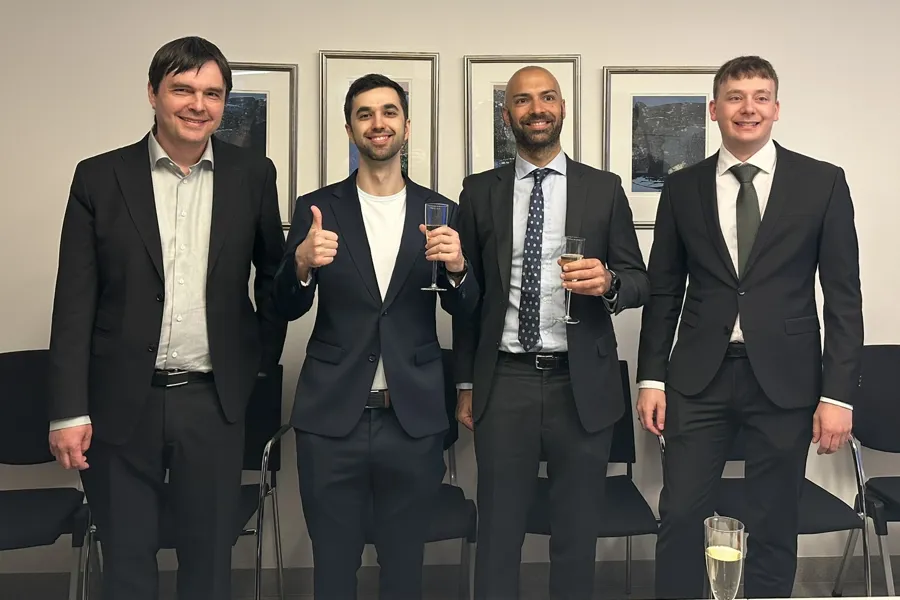Dissertation Artem Chernyshov
On May 28th 2025, Artem Chernyshov defended his thesis titled "Automated analysis of the right ventricle with efficient deep learning methods in 2D echocardiography" for the degree of Philosophiae Doctor at the Department of Circulation and Medical Imaging, Faculty of Medicine and Health Sciences, Norwegian University of Science and Technology (NTNU). The trial lecture was titled "Adapting foundation models to low-resource applications in medical domain: challenges and opportunities".

Photo: Privat
Adjudication committee
- First opponent: Dr. Alberto Gomez, Ultromics Ltd, Oxford, United Kingdom
- Second opponent: Professor Michael Kampffmeyer, Department of Physics and Technology, The Arctic University of Norway (UiT), Tromsø, Norway
- Third member and chair of the evaluation committee: Associate Professor Garbiel Kiss, Department of Computer Science, Norwegian University of Science and Technology, Trondheim, Norway
Chair of defence
- Associate Professor Garbiel Kiss, Department of Computer Science, Norwegian University of Science and Technology, Trondheim, Norway
Supervisors
- Professor Lasse Løvstakken, Department of Circulation and Medical Imaging, Faculty of Medicine and Health Sciences, Norwegian University of Science and Technology (NTNU)
- Dr. Andreas Østvik, Department of Circulation and Medical Imaging, Faculty of Medicine and Health Sciences, Norwegian University of Science and Technology (NTNU)
- Associate Professor Bjørnar Grenne, Department of Circulation and Medical Imaging, Faculty of Medicine and Health Sciences, Norwegian University of Science and Technology (NTNU)
- Dr. Svein Arne Aase, GE Vingmed Ultrasound AS, Horten, Norway
Summary
Echocardiography is the main tool for assessing heart health, but image interpretation remains difficult and prone to variability, even for experts. Deep learning-based AI tools have been proposed to aid analysis and enable real-time measurements, but current solutions are still limited. They mainly focus on the left ventricle (LV), require high computational power, and often neglect the right ventricle (RV), which is important for diagnosing many heart and lung conditions. These limitations hinder their use in low-resource settings.
The work aimed to broaden AI's role in echocardiography by developing efficient deep learning methods for analyzing the RV in 2D echo. The goal was to include RV assessment without adding to clinician workload and to support wider adoption in diverse healthcare settings.
Three contributions supported this goal: simplifying LV segmentation models, applying the obtained insights to RV segmentation, and streamlining an advanced tracking method for RV myocardium. Results showed that RV analysis can be accurate and efficient with lightweight models, with especially strong gains in tracking performance. These improvements may also benefit LV analysis.